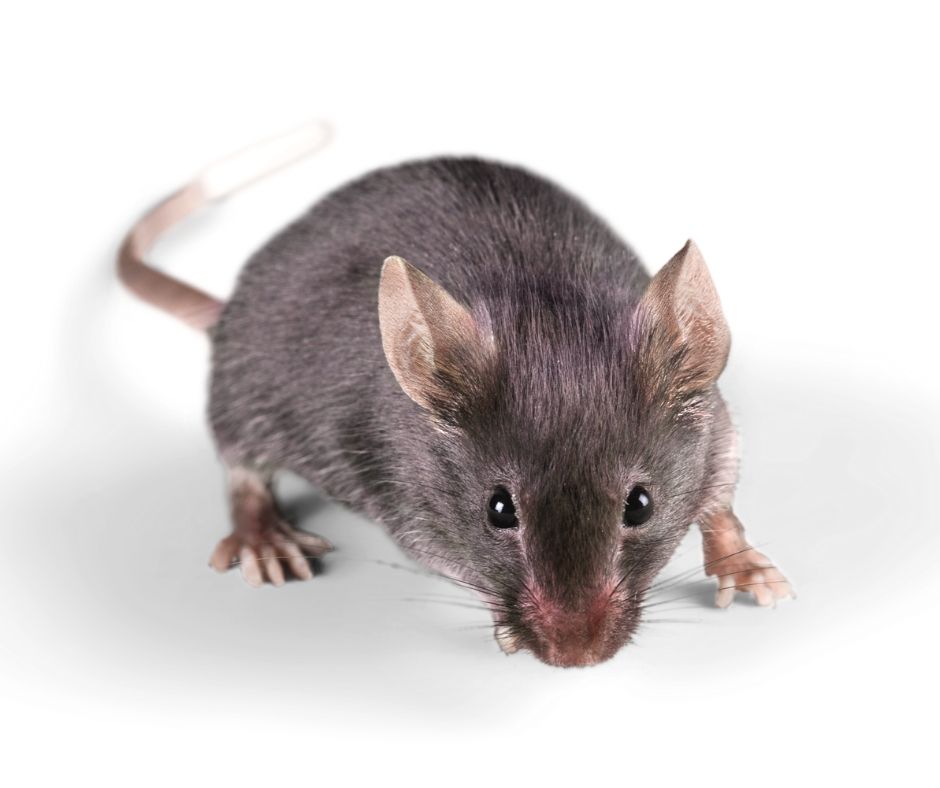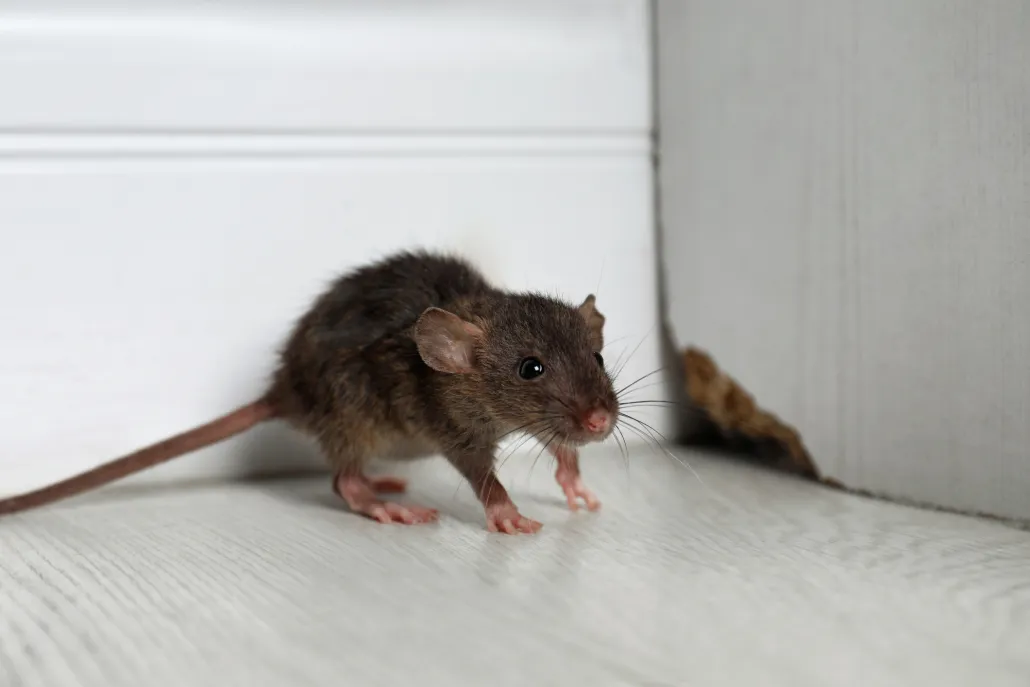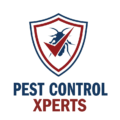Rodent Removal in Denton
Local solutions for homes and businesses in Lewisville and Krum
Rodent Control in Denton, Texas, Pest Control Xperts
For homeowners in Denton, the sound of scratching in the attic or walls is an immediate cause for concern. As the seasons change in North Texas, mice and rats seek shelter from the cooler temperatures and wet weather, often finding their way into homes through the smallest gaps. At Pest Control Xperts, we provide comprehensive rodent removal, mice extermination, and rat control for properties in Denton, Lewisville, and Krum. From the historic pier and beam homes near TWU to the new brick construction in Rayzor Ranch, no structure is entirely immune to these persistent invaders.
We understand that a rodent issue is more than just a nuisance; it is a threat to your property and health. Rodents can chew through electrical wiring, contaminate insulation, and spread disease. Our team prioritizes a rigorous pest inspection to identify not just where the rodents are nesting, but exactly how they are getting in. We utilize safe pest management practices and exclusion techniques to seal your home against future re-entry. With clear communication and dependable scheduling, we help you secure your home and restore your peace of mind. When you need effective solutions for mice or rats, we are ready to assist.
Rodent Problems We Solve in Denton
Rodents are opportunistic survivors. In Denton County, we deal with both the common House Mouse and the larger, more destructive Roof Rat and Norway Rat. These pests are drawn to our homes for warmth, water, and food. They often exploit the construction features common in our area, such as weep holes in brick veneer or gaps in roof returns. Rodent control is not just about setting a few traps; it is about understanding the behavior of the animal. A mouse can squeeze through a hole the size of a dime, while rats are cautious and wary of new objects, making them difficult to catch without professional strategy.
Our goal is complete infestation control. We focus on trapping the existing population while simultaneously sealing the exterior to prevent new rodents from replacing them. Effective pest management requires this two-pronged approach. Ignoring the entry points guarantees that the problem will return next winter.
Common signs of a rodent issue:
- Scratching, scampering, or gnawing sounds in ceilings or walls, especially at night
- Small, dark droppings found in pantry drawers, under sinks, or in the garage
- Gnaw marks on wood trim, plastic bins, or food containers
- Nests made of shredded paper, insulation, or fabric in attics or behind appliances
- Grease marks (rub marks) along baseboards or entry points
- Ammonia-like smells in enclosed spaces
- Pet behavior changes, such as staring at a blank wall or under the fridge
- Burrows or holes dug around the foundation of the home

Types of Rodent Issues We Handle
Mice extermination and control
The House Mouse is the most common invader we see in Denton homes. They are curious, reproduce rapidly, and can live their entire lives indoors if they have access to food. They often nest in wall voids, behind kitchen cabinets, or inside stored boxes. Because they forage close to their nest, simply placing traps in the garage often fails to solve a kitchen infestation.
What we look for during inspection:
- Droppings behind appliances and in silverware drawers
- Gaps around pipe penetrations under sinks
- Entry points in garage door corners
- Nesting material in HVAC closets
How we approach treatment:
We utilize integrated pest management to handle mice. This involves the strategic placement of snap traps or bait stations in areas where mice actively travel, keeping them out of reach of children and pets. Simultaneously, we assist with exclusion techniques for pests, sealing the small interior and exterior gaps that allow them to move from room to room.
Rat control and removal
Rats present a more significant challenge due to their size and intelligence. Roof Rats are excellent climbers and frequently enter attics through roof vents or overhanging tree branches. They can cause substantial damage to ductwork and insulation. Norway Rats are burrowers, often found in basements, crawlspaces, or under foundations. Rat control requires patience and precision, as they often avoid new traps for days.
What we look for during inspection:
- Large rub marks on rafters or pipes
- Chewed wires or structural wood damage
- Burrows under sheds or foundations
- Fruit or nuts stored in attics (caching behavior)
How we approach treatment:
We focus on targeted extermination services using heavy-duty trapping systems. We place these along established runways to increase success rates. A major part of our strategy is identifying and sealing the “super-highways” rats use to enter, such as unsealed roof returns or broken vent screens. We also provide sanitation guidance to remove outdoor food sources like bird feeders that attract them.
Rodent exclusion and proofing
Trapping removes the rodents you have; exclusion prevents the ones you don’t. Exclusion is the construction-based side of pest control. In Denton’s shifting soil, gaps often open up around foundations and windows. We specialize in finding these vulnerabilities. Rodent barrier installation is critical for long-term success.
What we look for during inspection:
- Weep holes without covers
- Gaps around AC lines and utility pipes
- Worn weather stripping on exterior doors
- Loose soffit vents or fascia boards
How we approach treatment:
We use durable materials like copper mesh, steel wool, and industrial sealants to close entry points. Unlike foam, which rodents can chew through, our methods create a permanent physical barrier. We offer pest proofing services that harden your home against invasion, turning a porous structure into a fortress.

Our Rodent Inspection and Treatment Approach
At Pest Control Xperts, we believe that you cannot solve a rodent problem until you see the whole picture. Our pest inspection is exhaustive. We start at the roofline and work our way down to the foundation. We check the attic for trails in the insulation, inspect the crawlspace for moisture and burrows, and examine the perimeter for entry points. We use high-powered lights to spot the tell-tale “rub marks” left by the oils on rodent fur.
Once we understand how they are getting in and where they are nesting, we develop a custom plan. This typically involves a combination of trapping to reduce the immediate population and exclusion to stop the flow of new pests. We monitor the situation closely. Rodent removal often requires follow-up visits to check traps and adjust our strategy based on activity levels. We do not just set it and forget it.
We are committed to safe pest management. When rodenticides are necessary, we use tamper-resistant stations anchored securely to prevent access by non-target animals. We explain our methods clearly so you know exactly what is happening in your home. Our pest assessment services also include checking for conducive conditions, such as overgrown vegetation, that acts as a ladder for rodents to reach your roof. By addressing these factors, we provide comprehensive pest solutions.

Rodent Prevention and Pest Proofing Tips for Denton Residents
Preventing rodents in North Texas requires vigilance, especially as the weather cools. Rodents are constantly scouting for warmth. While professional exclusion is the most effective defense, homeowners can take several steps to make their property less attractive. Property pest management starts with sanitation and landscaping. Preventative steps that actually help:- Trim tree branches back at least six feet from the roofline
- Keep firewood and lumber piles elevated and away from the foundation
- Seal pet food in metal or heavy plastic containers
- Remove bird feeders or clean up spilled seed daily
- Ensure attic vents have sturdy hardware cloth screens
- Repair damaged weather stripping on garage and entry doors
- Avoid letting dense ivy or ground cover grow against the house
- Keep garbage bins clean and tightly closed
- Check seasonal decorations brought in from storage for signs of nesting
Residential and Commercial Rodent Control
Rodents are a liability for any building owner. We provide residential pest control services to protect families in Denton, Lewisville, and Krum from the sleepless nights caused by attic noises. We treat everything from pier and beam bungalows to modern slab homes, adapting our methods to the construction style. For businesses, a rodent sighting can lead to health code violations and lost customers. We offer commercial pest services designed for restaurants, warehouses, and office buildings. We understand the specific pressures of restaurant pest control, where an open back door or a dumpster pad can attract rats. We provide discreet, effective service with documentation that meets regulatory standards. We also work with property managers to handle rodent issues in multi-unit housing, preventing spread between apartments. Whether you need a local pest control partner for your home or business, our pest exterminators have the expertise to handle the job.Professional Rodent Extermination vs DIY Methods
When rodents appear, many homeowners buy a handful of snap traps or a box of poison pellets. While this might catch a mouse or two, it rarely solves the infestation. DIY trapping often fails because traps are placed in the wrong locations or use the wrong bait. Rodents are creatures of habit; if you do not place the trap directly in their runway, they will simply walk around it.
More dangerously, the improper use of loose poison baits can lead to rodents dying inside wall voids. This results in a terrible odor that can last for weeks and attract other pests like flies and beetles. Professional rodent removal avoids this risk. We focus on trapping and removal so that the bodies can be disposed of properly.
Most importantly, DIY methods rarely address exclusion. You can trap mice all winter, but if you leave the entry hole open, new ones will keep coming in. Professional pest management provides the exclusion techniques for pests that physically stop the invasion. We have the tools and materials to seal gaps that most homeowners miss. Investing in professional service breaks the cycle of infestation for good.
Frequently Asked Questions About Rodent Control
Do you provide rodent control in Denton and nearby areas?
Yes, we provide specialized rodent control services in Denton, Lewisville, Krum, and the surrounding communities. We are familiar with the local rodent species and the construction styles that they exploit. We serve both residential and commercial properties.
How long does it take to get rid of rats or mice?
The timeline depends on the severity of the infestation and how long they have been established. Trapping programs typically last a few weeks. The exclusion repairs are usually completed quickly, but we monitor to ensure no rodents are trapped inside before sealing everything completely.
Do you use poison inside the house?
We generally avoid using rodenticides inside the living areas of a home to prevent rodents from dying in inaccessible walls. Our interior focus is on trapping and removal. If baits are necessary, they are used in secure, tamper-resistant stations, usually on the exterior or in non-living spaces like attics, following strict safety protocols.
How do rodents get in?
Mice can fit through a hole the size of a dime; rats need a hole the size of a quarter. They enter through weep holes, gaps around pipe penetrations, roof vents, worn door sweeps, and even by climbing rough brick or trees to reach the roofline. We inspect all these areas.
Is there a local rodent removal service near me?
If you are in Denton, Lewisville, or Krum, Pest Control Xperts is your local solution. We are nearby and can respond promptly to your rodent issues. Our local experience means we know exactly where to look in Denton-area homes.
Do you offer clean-up services for droppings?
Yes, rodent droppings can be hazardous. We can discuss sanitation services to clean up accessible areas where rodents have been active. We also provide advice on how to safely handle minor cleanup to avoid kicking up dust and allergens.
How do I prevent mice in the winter?
The best prevention is exclusion. Seal any exterior gaps before the cold weather hits. Also, manage your landscaping by trimming branches away from the roof and clearing debris from the foundation. Removing food and water sources also makes your home less attractive.
Are the traps safe for my dog or cat?
We place traps in areas that are generally inaccessible to pets, such as in the attic, behind appliances, or inside locked cabinets. If we use bait stations, they are tamper-resistant and designed specifically to keep pets and children out.
Service Area for Rodent Extermination in and Around Denton, Texas
Pest Control Xperts is proud to serve the Denton community. From the rural properties in Krum facing field mouse pressure to the suburban homes in Corinth dealing with roof rats, we cover the entire region. We understand how the local geography, from the Greenbelt to the agricultural outskirts, influences rodent behavior. Providing local service means we are committed to protecting our neighbors from these destructive pests.
- Denton
- Lewisville
- Krum
- Corinth
- Shady Shores
- Lake Dallas
- Argyle
- Sanger
- Ponder
We are dedicated to providing reliable and effective pest management. If you live in or near these communities, reach out to us for assistance.
Zip codes we serve: 76201, 76205, 76207, 76208, 76209, 76210, 75057, 76249
Conclusion
At Pest Control Xperts, we know that sharing your home with rodents is stressful and unsafe. Whether you are hearing noises in the attic or finding droppings in the kitchen, our team has the expertise to solve the problem. We help homeowners in Denton, Lewisville, and Krum secure their properties with proven, effective strategies that keep pests out for the long term.
Don’t let mice or rats take over your home. If you suspect an infestation, it is time to act. Contact us today to schedule your inspection and let us restore safety and comfort to your home.
